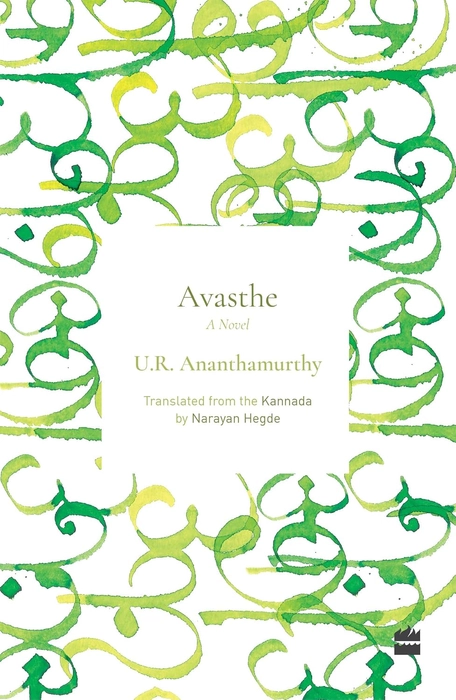Prakash Books - Avasthe : A Novel
Product details
Overview
"Avasthe" by U.R. Ananthamurthy, first published in Kannada in 1978, is a deeply philosophical and politically charged novel. The story revolves around Krishnappa Gowda, a revolutionary leader and a man of high ideals, who is bedridden and reflecting on his life. As he battles a failing body and the reality of a corrupt political landscape, he contemplates his role in shaping society and grapples with personal guilt, moral dilemmas, and the true meaning of existence. The novel captures a critical moment in Indian politics, with echoes of totalitarianism looming in the background.
Key Themes
- Political Corruption and Power: Set against the backdrop of a nation on the brink of dictatorship, the novel explores how political ambition and corruption corrode human values. Krishnappa's disillusionment reflects the larger discontent with the political system.
- Moral Conscience vs. Political Reality: Krishnappa’s internal battle is not just physical but moral. He struggles to reconcile his revolutionary ideals with the practical failures of political leadership, illustrating the tension between idealism and the harsh realities of governance.
- Human Frailty and Mortality: The novel delves into the theme of aging and the limitations of the human body. As Krishnappa lies bedridden, his body fails him, but his mind continues to search for meaning in life.
- Caste and Social Inequality: Ananthamurthy, known for his critique of caste, uses the novel to highlight how caste and poverty continue to oppress marginalized communities in India.
- Nature, Poetry, and Love: In contrast to the grim political and social landscape, the novel also celebrates the beauty of nature, the solace of poetry, and the transformative power of love and friendship.
Writing Style
Ananthamurthy’s writing in "Avasthe" is introspective and layered with symbolism. His prose is elegant, yet rich with philosophical inquiry. The novel alternates between present reality and Krishnappa's memories, blending personal narrative with political commentary. The style reflects the complexity of Krishnappa's internal world, as he meditates on life’s profound questions while navigating his physical decline.
Conclusion
"Avasthe" is more than a political novel; it is a reflection on life, morality, and the human condition. Ananthamurthy masterfully balances political critique with deep personal reflection, making this a quintessential Indian novel. Its exploration of power, conscience, and the struggle for justice resonates with universal themes, while its rootedness in the Indian context gives it a unique cultural significance. This novel remains relevant for readers seeking to understand both the political landscape of India and the timeless quest for meaning in life.



